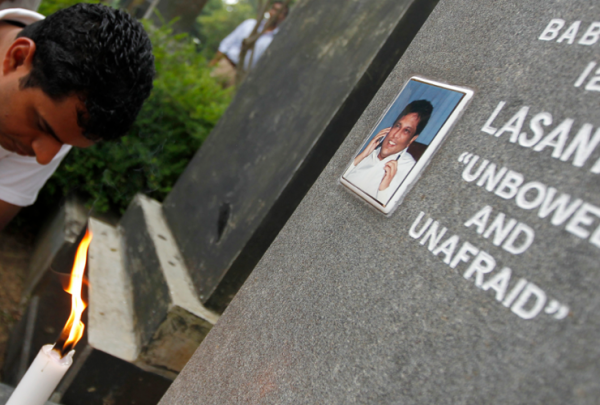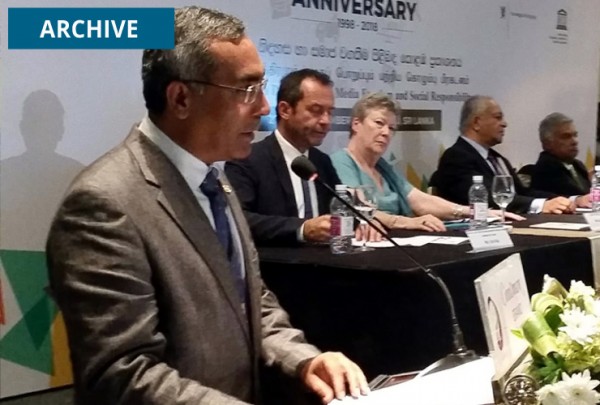The International Press Institute (IPI) expresses today its concern about recent attacks against journalists and an overall deterioration of press freedom in Sri Lanka.
On Sept. 2, BBC Tamil’s journalist Ponnaiah Manikavasagam, was questioned by the anti-terror police in relation to a telephone conversation he had with two Tamil prisoners in Colombo.
IPI Press Freedom Manager Barbara Trionfi said: “This kind of intimidation of journalists represents a clear threat to democracy in Sri Lanka. We urge authorities to ensure a freer environment for media in the country and allow individual reporting.”
Officials of the Terrorism Investigation Department questioned Manikavasagam regarding the telephone conversations he had had with two individuals, currently held at Magazine Prison in Colombo. The two prisoners are currently under trial on charges related to their alleged involvement with The Liberation Tigers of Tamil Eelam during the brutal 26 year Civil War which ended in May 2009 with the victory of the Sri Lankan government over the LTTE.
The BBC sharply criticized the questioning of Manikavasagam by the Terrorism Investigation Division Unit and provided him immediate legal support.
In a Sept. 2 article, BBC noted that: “Mr Manikavasagam has reported for the BBC World Service for many years and we are confident that all his activities were carried out in pursuit of his normal journalistic duties.”
Monday’s questioning of Manikavasagam comes after a period of heavy media turbulence in Sri Lanka. Navi Pillay, UN’s Chief Commissioner of Human Rights referred to Sri Lanka as being “increasingly authoritarian”. This claim comes in response to the harassment reportedly faced by many Sri Lankans who had come to meet Pillay during her visit to Sri Lanka last month. Sri Lankan officials have refuted these claims, describing them as “prejudiced”.
“This type of surveillance and harassment appears to be getting worse in Sri Lanka, which is a country where critical voices are quite often attacked or even permanently silenced,” Pillay said wrapping up a week-long visit to Sri Lanka in late August.
At the end of last month, investigative online news website The Colombo Telegraph was blocked throughout Sri Lanka. This is not the first time the news outlet, which is published abroad, has been blocked in the country. Founder and editor Uvindu Kurukulasuriya told IPI that his news website was blocked at least once each year since it was launched in 2011. In 2012, The Colombo Telegraph also experienced attacks by hackers, the cause of which has yet to be cleared.
“Self-censorship in Sri Lanka has gone beyond the pale,” Kurukulasuriya told IPI. “The Colombo Telegraph is publishing the stories that Sri Lankan media does not cover. I believe that is the reason for this blocking”.


